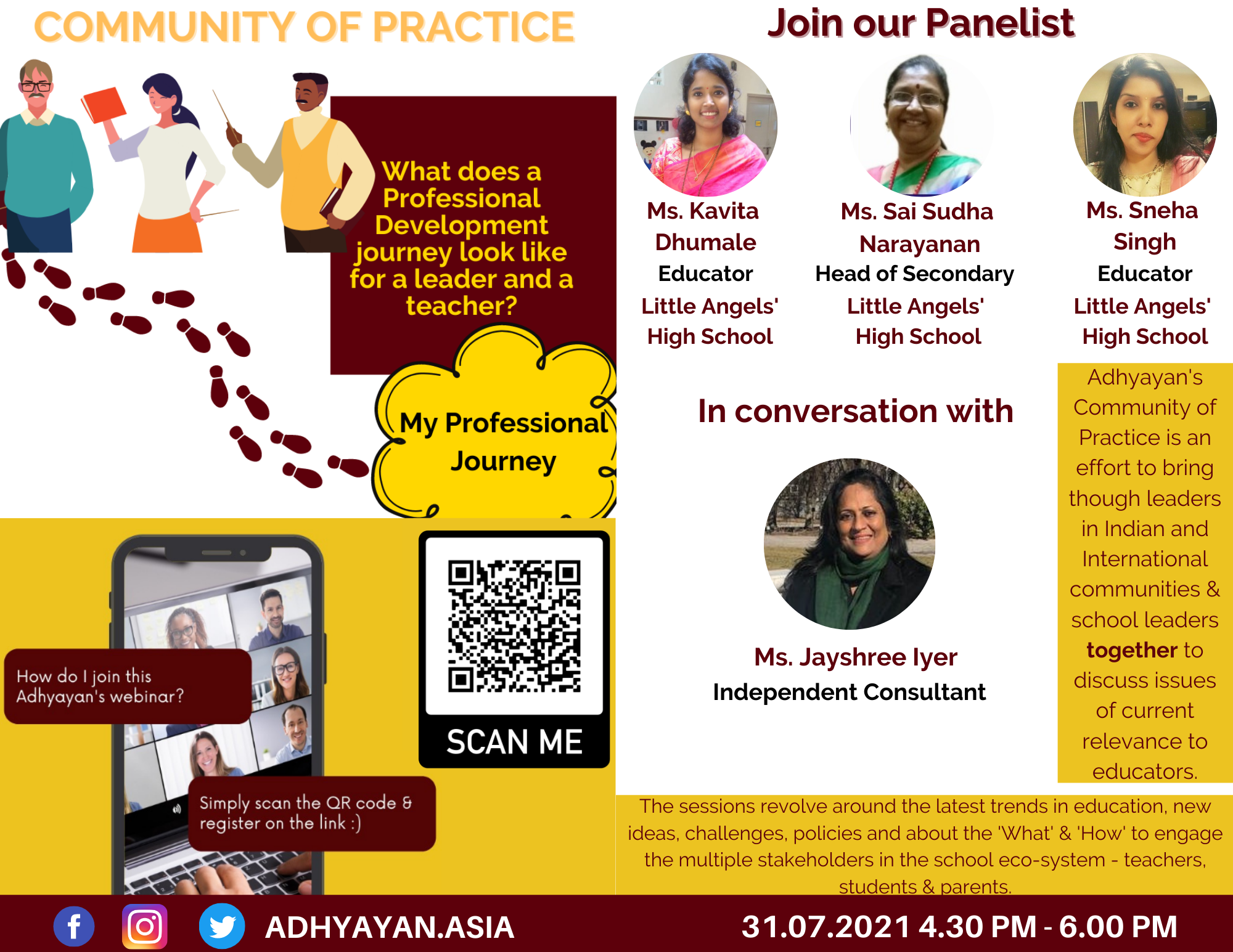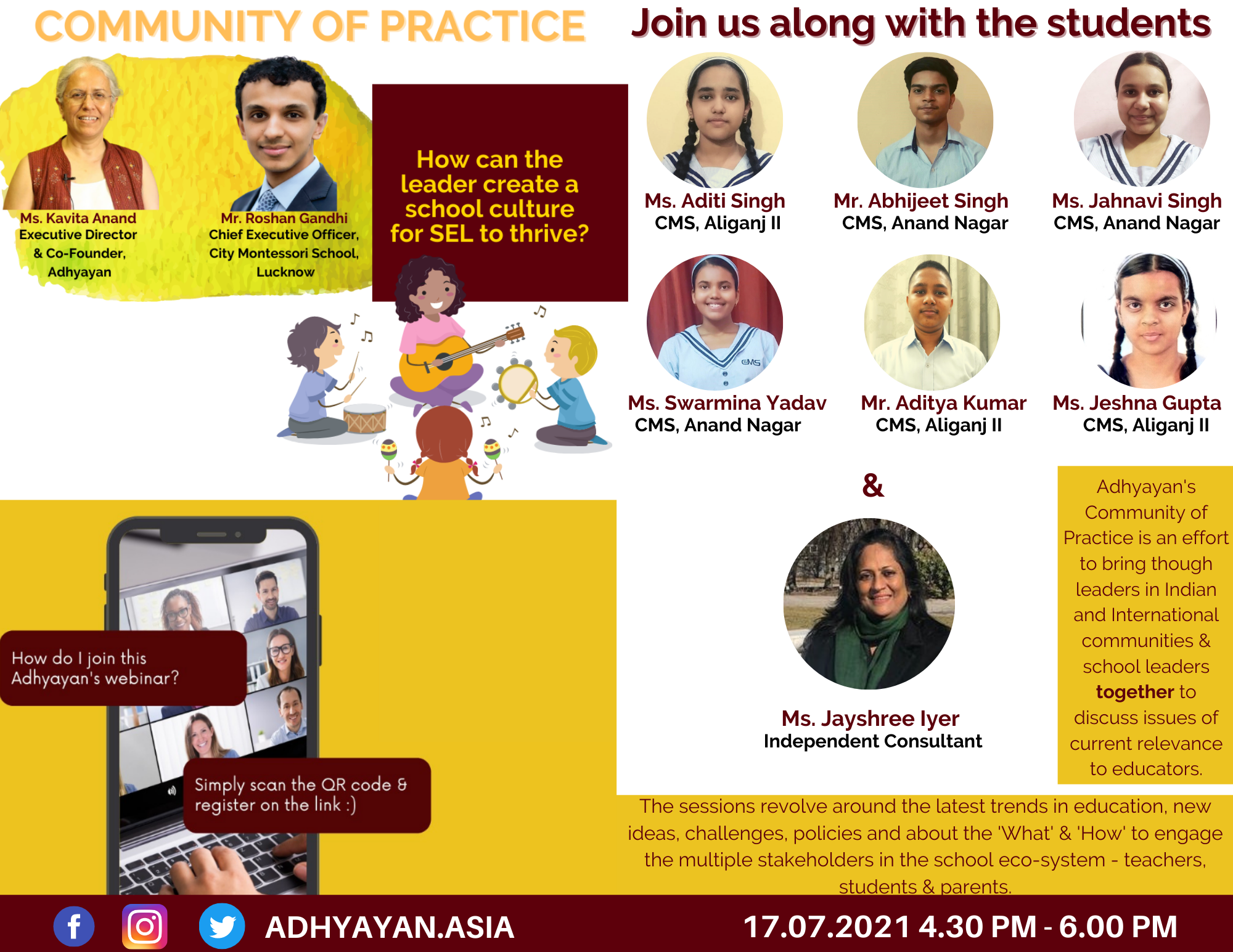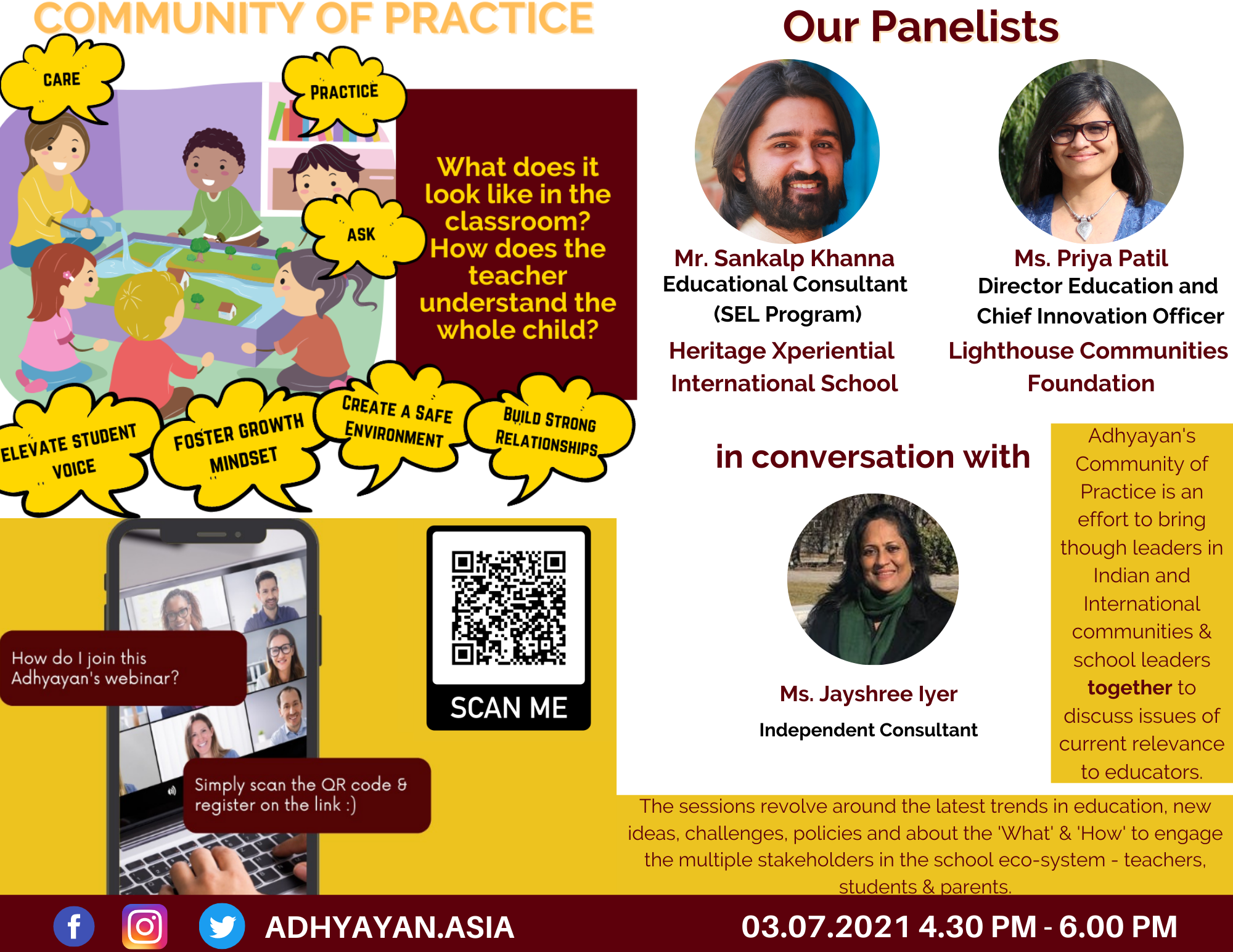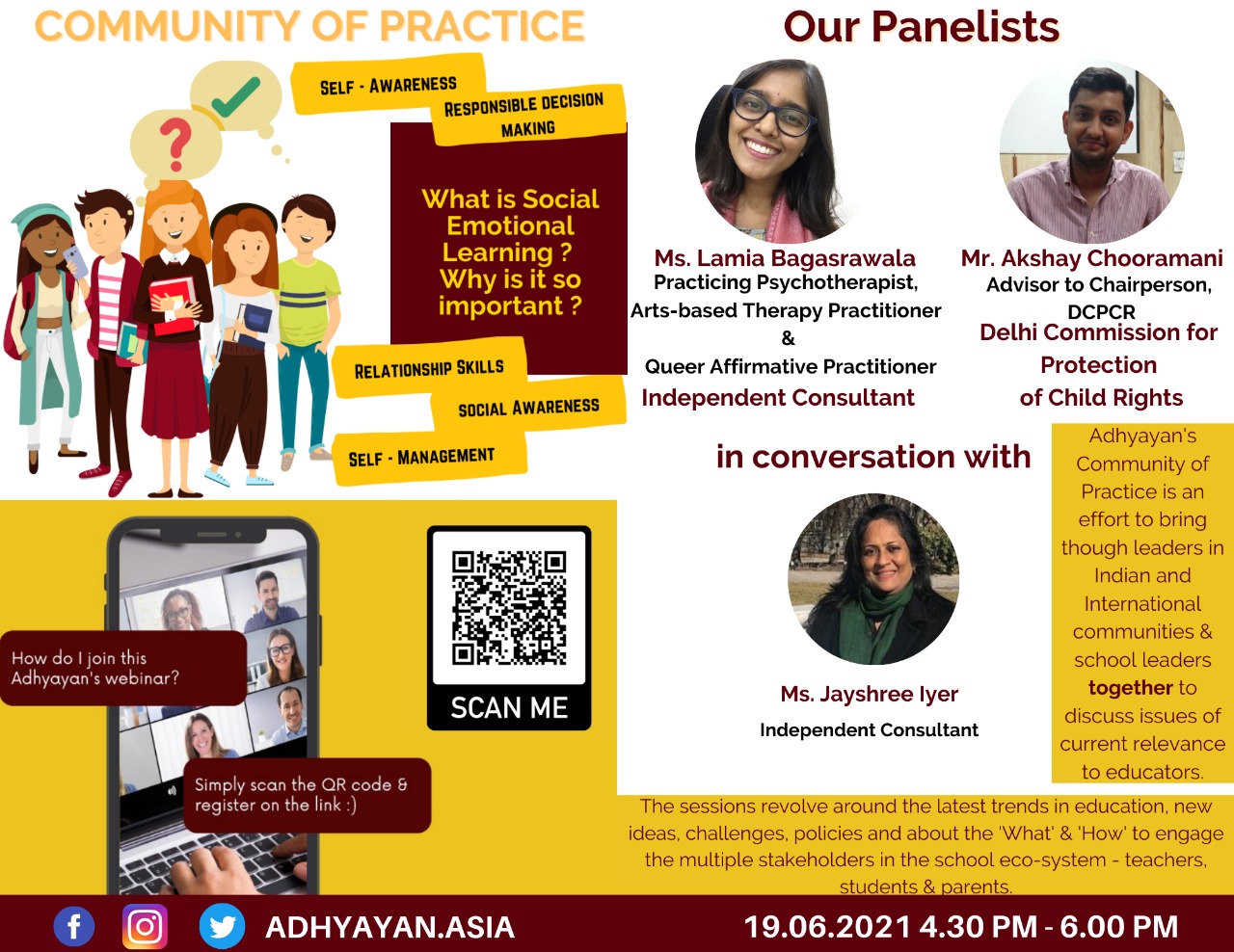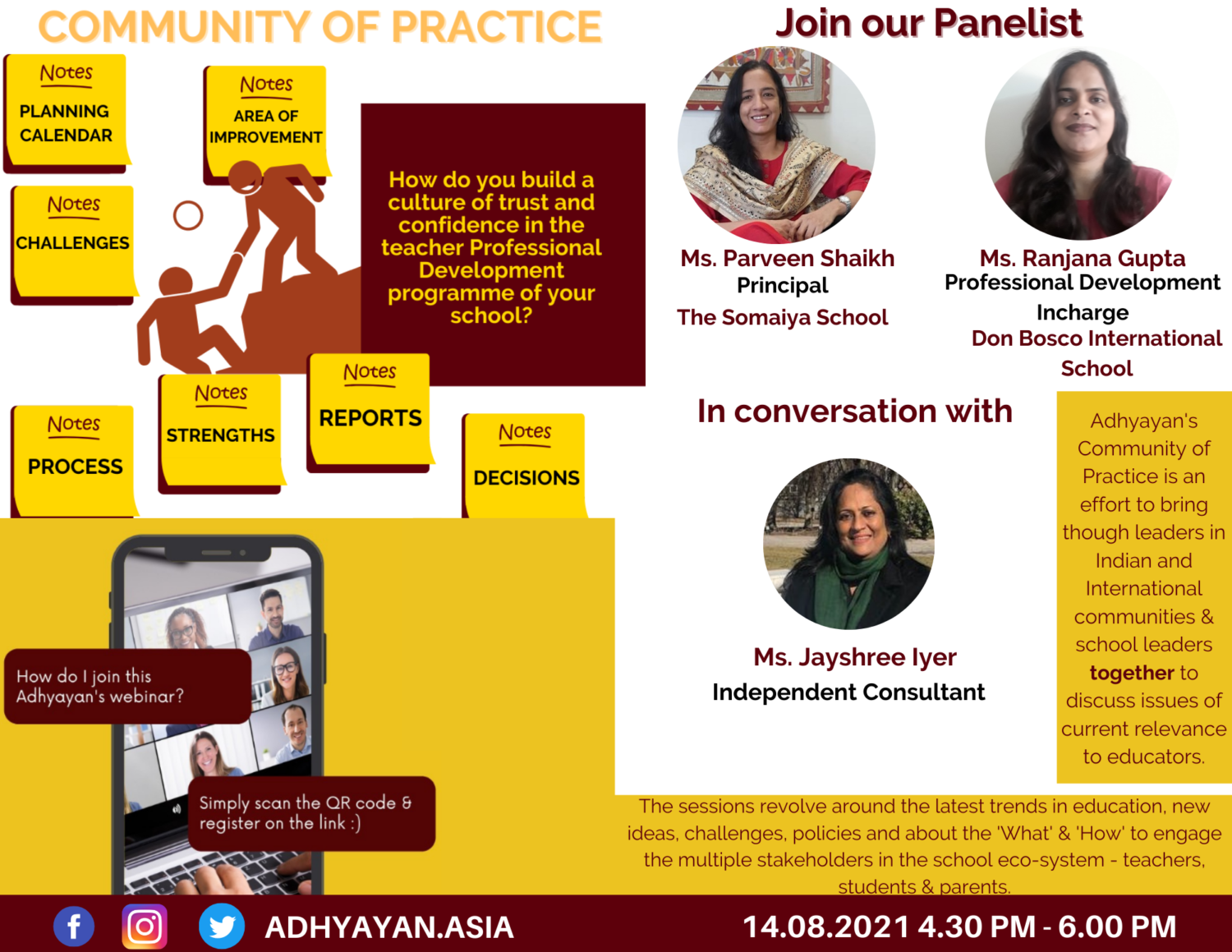
Panelists
Parveen Shaikh- Principal Somaiya school, Mumbai
Ranjana Gupta-CPD in charge of Don Bosco School, Mumbai, Trainer on different aspects of CPD associated with Adhyayan.
Host
Jayshree Iyer
Before COVID 19 only 3% of schools had a teacher in charge for continuous professional development of teachers while in 19% of schools this job has to be taken up by the principal only. The rest of them have no one responsible for them. Jayshree began the session unraveling these facts about Indian schools unknown to most of us.
Does it raise questions like whether CPD was taken seriously by the schools and teachers? Were the school authorities really concerned about whether the teachers were skilled enough to deal with their jobs?
Such concerns definitely explain the need for 50 hours of CPD mandated by the government for the teachers.
CPD is essential for the school teachers but is not a magic wand that makes the school the best in one day. This requires building a culture of learning in schools where the stakeholders like leaders, teachers, and the rest of the staff are ready for it, there is the flexibility of choice and encouragement by school authorities.
“Who dares to teach must never cease to learn”, is what drives Ranjana in setting up such a culture for professional development of educators in the institutes with which she is associated. Elaborating on her scheme of operation, she emphasized the first step of setting goals for the same by the school which may be synonymous with the School’s vision and mission ultimately permeating to the level of subject-teaching. It is necessary to review the school and professional growth of the teachers before setting up an action plan.
Generally, the school calendar keeps professional development activities as the end of the session, before/after a break, or just before it is about to begin. The resources for PD are identified from outside or within the school. After conducting such seminars or workshops, some teachers may require mentoring while some others may be in a position to help them.
The next session of PD is based on the review of the previous one with the setting of goals once again.
Enlisting the essential components of PD in a school as common vocabulary, appreciation, transparency, easy flow of communication among the stakeholders, and consistency of operation to name a few, Parveen revealed the secret known to everyone that schools enhance the quality of their teachers constantly to stay as good schools. It is the teachers who can influence the students’ achievement and learn to the positive or negative side.
A very important point put forth by her is that CPD has to be intentional and need-based. The schools need to set a budget for that and consider all staff-teaching, non-teaching, admin, and others for it and not just teachers of core subjects. At times involving parents is also a good idea. Needs may be specified by the staff themselves or through observation by others. Follow-up of the training may be evaluated in the form of its degree of implementation. Classroom observation may also help in the form of constructive feedback to improve further. Peer observation can help in their own growth especially with the format of recording observation shared by Adhyayan.
“Reflection is the beginning of reform”, marking this quote she explained that reflection in action and inaction, both are useful. She suggested her teachers record any one of their best lectures and self-analyze their performance before asking their colleagues to do the same for it. Over a period of time, they would know the reason for performing an activity in the class and its expected outcome. Reflecting-capacity of teachers can take them from mediocrity to excellence.
She pointed out the importance of induction and mentoring of a new teacher. Mentoring them in the first year helps them to get used to school culture. The mentor teachers also get leadership training in this process. Sharing innovative practices, teacher exchange programs with schools in other cities, states, and countries also play a big role in professional development.
She depicted the continuum of self-reflection in a teacher from an inexperienced to a highly experienced and confident teacher. She gave a lot of credit to Adhyayan for not just auditing their school and reviewing the performance of teachers but also guiding them through this journey of improvement to be one of the best schools. Another useful insight was to base one’s action on data. Data is helpful to point towards areas that require attention as well as gives them moments of celebration and helps them to create a meaningful action plan.
Summing up, Jayshree brought out the highlights of CPD done by Parveen like the personalization of PD as per the requirement of each teacher, the humane outlook of a leader to support every teacher to draw out the best in them.
The session wound up with a comment by Jayshree that like other professionals, teachers also have entitlement to their Professional Development as their job is no less important than others as it is them who are grooming these professionals for the future!
Click here to watch the full session.
